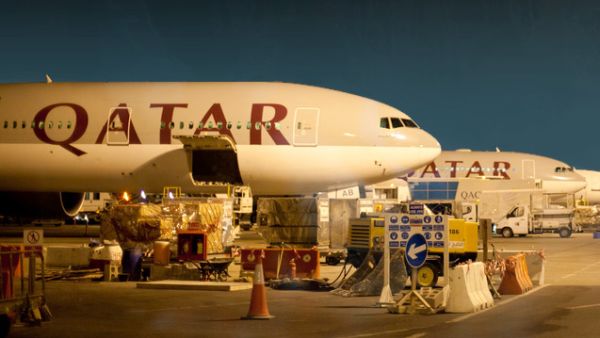RIYADH – Egyptian airport sources said on Wednesday that Qatari citizens would be subject to additional security screening measures “to make sure that they are not involved in hostile acts against Egypt, either through the media or business.”
They said Qatari diplomats and special passport holders could not now enter Egypt without visas, applying the principle of reciprocity.
The Egyptian authorities said they will recall Egypt ambassador to Qatar. “The decision to recall the ambassador is a protest over the rejected Qatari interference in the Egyptian domestic affairs,” MENA quoted a governmental source as saying.
The Egyptian measures follow a joint decision by Saudi Arabia, the United Arab Emirates (UAE) and Bahrain to withdraw their ambassadors from Qatar because Doha had not implemented an agreement among Gulf Cooperation Council (GCC) countries not to interfere in each others’ internal affairs. Qatar’s stock market tumbled 2.3 percent after the announcement.
The joint statement said Qatar’s Emir Sheikh Tamim Bin Hamad Al-Thani failed to uphold the security agreement that he signed in late November in Saudi Arabia. The Emir of Kuwait was a witness to the meeting in Riyadh and the agreement was endorsed by other members in the six-nation GCC.
The agreement called on all GCC members not to interfere, “whether directly or indirectly” in another member nation’s internal affairs. It also stipulated that GCC countries would not support organizations or individuals that threaten the security and stability of Arabian Peninsula countries “either through direct security work or by attempting to influence politics.”
However, three months after signing the agreement, no action was taken by Qatar despite “great efforts” by the Gulf Arab nations to reach out to Doha’s leadership to fulfill its side of the deal, said the Saudi-UAE-Bahrain statement.
Saudi analyst Anwar Edshki said the decision was a warning to Qatar to stop inciting violence by supporters of Muslim Brotherhood in Egypt. Qatar’s Cabinet voiced “regret and surprise” at the decision but said Doha would not pull out its own envoys in response and that it remained committed to “the security and stability” of the GCC.
Kuwait’s parliament speaker said that Kuwait’s emir could help soothe the diplomatic rift.
“We follow with concern the implications,” Kuwaiti parliament speaker Marzouq Al-Ghanim said, according to state news agency KUNA.
He added that he looked forward to efforts by Kuwait’s Emir Sheikh Sabah Al-Ahmad Al-Sabah to “heal a rift between brothers in the Gulf Cooperation Council,” the agency said.
The three Gulf countries “have lost hope for change in Qatar’s policy. They were deeply disappointed,” Emirati analyst Abdulkhaleq Abdulla said.
On Monday, a UAE court which has already jailed dozens of Emirati and 20 Egyptian Islamists sentenced Qatari Mahmud Al-Jidah to seven years in prison after he was convicted with two Emiratis of raising funds for a local Muslim Brotherhood-linked group, Al-Islah.

Qatar is facing a diplomatic row with Saudi Arabia, the United Arab Emirates, and Bahrain after the countries pulled their ambassadors from Doha on Wednesday. (AFP/File)







